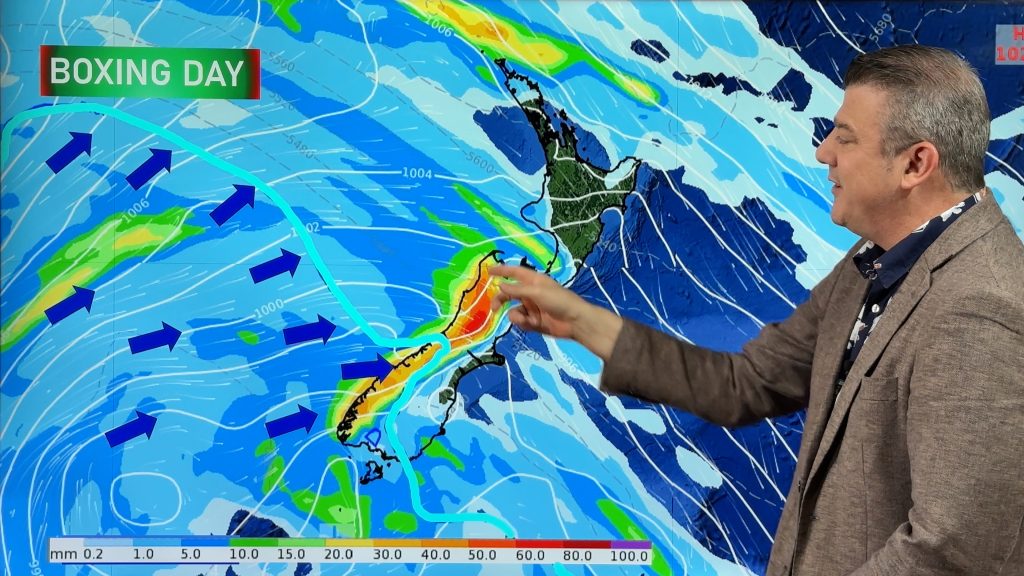
> From the WeatherWatch archives
At the change of every season WeatherWatch.co.nz receives a number of comments from our readers with regards to the “official” start and end dates of our seasons.
In New Zealand we mark the start and end of the seasons using the meteorological calendar – which, for administration reasons – is marked at the start of a new month. In other nations, like the US and Canada, the astronomical calendar is used – which ties in with the earth’s movement around the sun.
The difference:
- Meteorological Autumn – March 1st to May 31st
- Astronomical Autumn – *March 22 (equinox) to *June 22 (solstice)
*The exact date does change each year, usually it’s around the 21st to 23rd
The astronomical dates are generally considered the more accurate representation of the seasons… for example, March can be warmer than December, making it more summer-like than December.
But it goes both ways – and many northerners would struggle to class September as being officially “winter”.
While the government and most New Zealanders observe the meteorological seasons there is no “official rule” that says this. We are free to celebrate the change of seasons when we see fit.
More often than not it’s the forecasters and media that push the current set up.
So we’ll take a poll and go from there – do you think WeatherWatch.co.nz should adopt the Astronomical dates for the seasons, or retain the current meteorological dates? Vote below!
Homepage image / Taylor Shea
Comments
Before you add a new comment, take note this story was published on 29 Feb 2012.






Add new comment
Guest on 8/09/2016 8:23am
Is the first week of December statistically colder than the first week of March? It should probably be the 92 days of the year that are the hottest (or coldest for winter).
I remember hearing on a podcast that in highly continental climates the weather is mainly impacted by the length of day, so generally the hottest day is around the summer solstice. However, the oceans typically are warmest just before the autumn equinox, so in climates close to the sea the hottest day is typically much later.
Living in Wellington, surrounded by water, and having snow in “spring” (today 8th September and snowing outside), today I’m leaning towards an astronomical definition. But maybe the definition would be different for Alice Springs as it would be Auckland or Wellington.
Paul
Reply
WW Forecast Team on 8/09/2016 8:43am
Hi Paul – problem is spring is SUPPOSED to have snow and frosts! Spring is a mix of winter and summer – it’s not summer already.
Spring conditions get underway before the astronomical date – but you’re right in thinking it’s the best general guide, but moreso for planet earth – for NZ mother nature usually kicks things off much earlier.
– Cheers
WW
Reply
Guest Steve on 1/03/2012 7:00am
In my opinion it will not make any difference what system is used as the weather seasons will please itself when it changes. When you put an “official” start or finish to a season and the weather doesn’t co-operate this only causes confusion. It also brings extra expectations on you, our weatherguides.
The beauty about the weather is that it can be unpredictable for better or worse at any time. As an outside worker it is great to decide for yourself that the day feels like a pleasant summers day or a nice autumn one.
As an extra thought is the timing of daylight saving throwing a spanner in peoples expectations of our summer months?
Reply
JohnGaul on 1/03/2012 6:39am
Yes.. but the Eqinoxical/Solstice events occur in the months of March/June/September/December, so really it doesn’t really matter as far as I’m concerned.
JohnGaul
NZThS
Reply
Nic on 29/02/2012 10:41pm
Didn’t you do a similar poll at the beginning of spring or summer? I’m pretty sure the result was the opposite too (going by current results)… it seems people just want a longer summer!! Who can blame them, a proper summer would have been nice!!
Personally I don’t think it matters too much except that it’s nice to know what date each season begins, and the first of the month is easy to remember. I guess in some ways the astronomical makes more sense though…
Reply
Maria on 1/03/2012 3:17am
It would have been nice for the kids to have a decent “summer break” this year, if the seasons were later maybe the school holidays would change too!
Reply